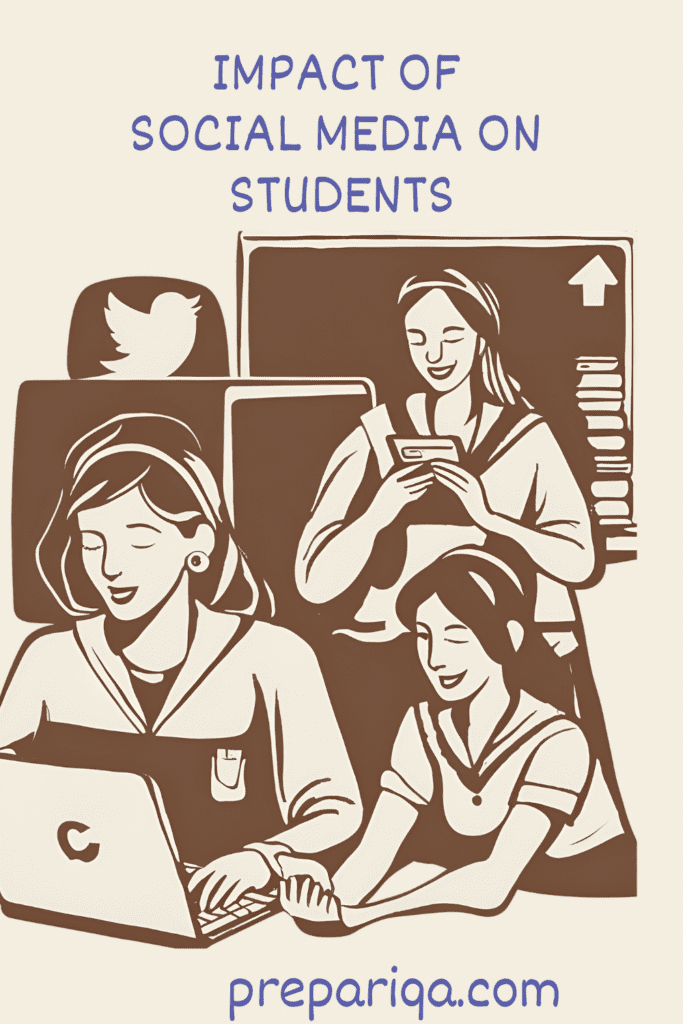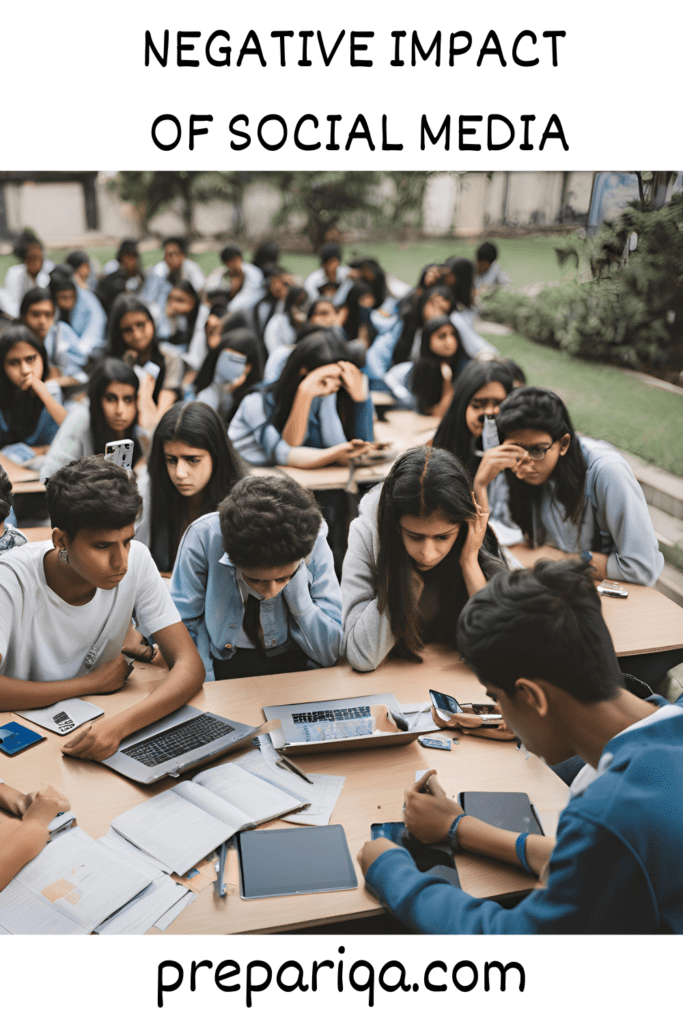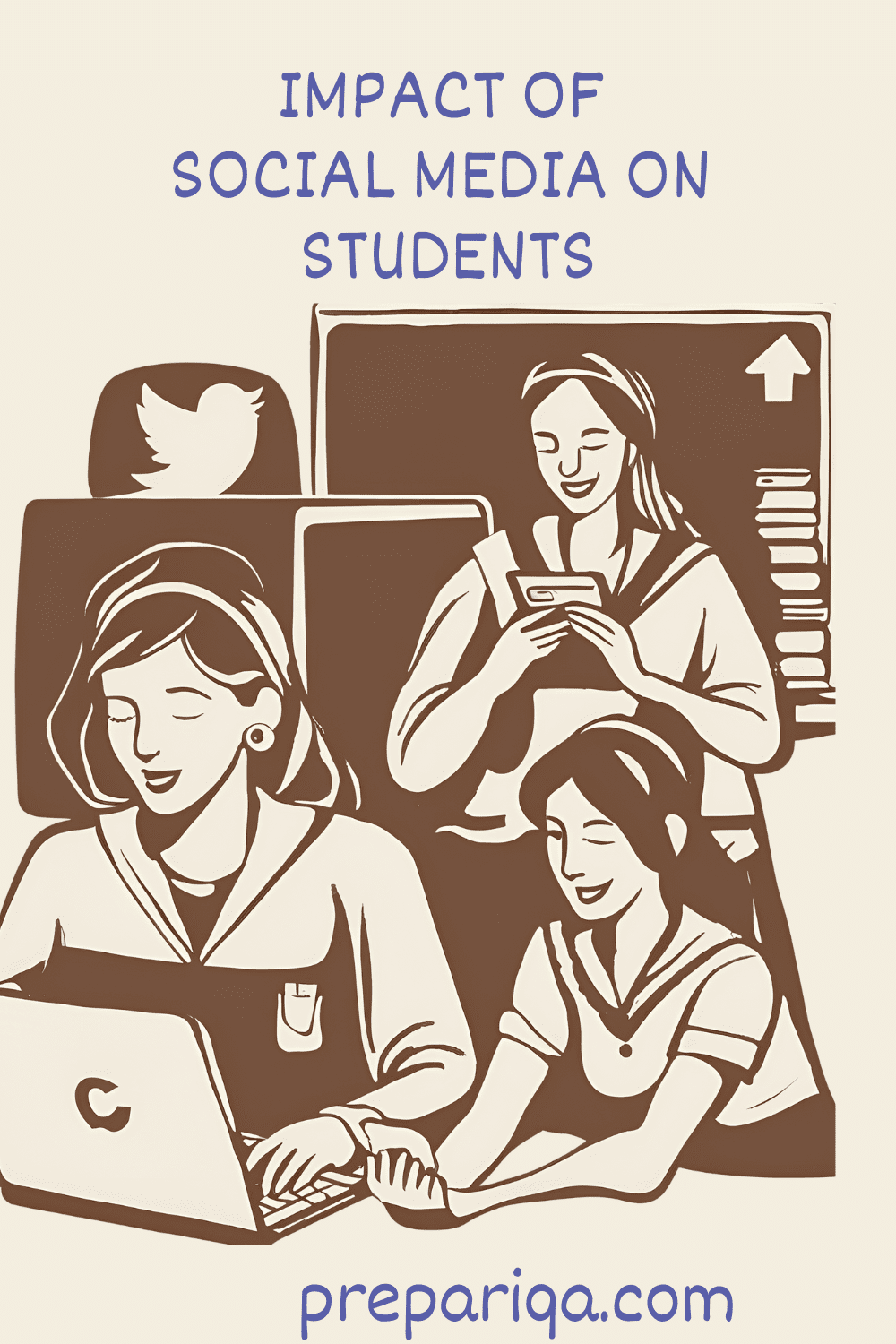Social media is a huge part of students’ lives today. But how does it really affect them? Does it help them learn and connect with others, or does it lead to problems like poor grades and mental health issues? The impact of social media on students can be good or bad, let’s explore. We’ll look at how it can be used for learning and support, but also how it can distract and harm their well-being. We’ll also give some tips on how to balance social media use with schoolwork and how parents and teachers can help.
Table of Contents
The Rise of Social Media Among Students

Social media is everywhere, and students are using it more than ever. Almost every student has a smartphone or a computer with access to the internet. Platforms like Instagram, Snapchat, TikTok, and Twitter are incredibly popular among young people.
- Prevalence of Social Media Use – Studies show that most students use social media daily. It’s not just a way to stay in touch with friends; it’s a big part of how they see the world and share their own lives.
- Popular Platforms – Instagram and Snapchat are favorites for sharing photos and short videos, while TikTok is loved for its fun and creative content. Twitter is often used for quick updates and news.
Positive Impacts of Social Media on Students
Social media isn’t all bad. It has some clear benefits for students when used wisely.
- Educational Resources and Learning Opportunities – Many students use social media to help with their studies. They can find videos, articles, and other resources that make learning easier and more interesting. There are also groups and forums where they can ask questions and get help from others.
- Social Connections and Support Networks – Social media makes it easy to stay in touch with friends and family, even if they are far away. This can be really important for students who need a support system. They can share their problems, get advice, and feel less alone.
- Skill Development – Using social media helps students develop important skills. They learn to communicate clearly and creatively. They also become better at using technology, which is a valuable skill in today’s world.
Negative Impacts of Social Media on Students

While social media has its perks, it also has some serious downsides that can affect students in negative ways.
- Academic Performance – One of the biggest problems with social media is that it can be very distracting. Students might spend hours scrolling through their feeds when they should be studying. This can lead to lower grades and poor academic performance.
- Mental Health Issues – Social media can also have a bad impact on mental health. Seeing other people’s perfect lives can make students feel bad about themselves. This can lead to anxiety, depression, and low self-esteem. Cyberbullying is another serious issue that can happen on social media.
- Sleep Disruption – Many students stay up late using social media, which can mess up their sleep. Lack of sleep can lead to tiredness, poor concentration, and other health problems.
Balancing Social Media Use and Academic Responsibilities
It’s important for students to find a balance between using social media and focusing on their schoolwork. Here are some tips to help manage this balance:
- Time Management Strategies – Set specific times for using social media and stick to them. Use timers or apps that limit how much time you spend on social media each day. Prioritize schoolwork and use social media as a reward after completing assignments.
- Creating a Healthy Routine – Establish a daily routine that includes time for studying, exercise, and socializing offline. Make sure to have some social media-free time, especially before bed, to ensure good sleep.
Parental and Educator Roles in Managing Social Media Impact
Parents and teachers play a crucial role in helping students use social media in a healthy way.
- Guidance and Monitoring – Parents should talk to their children about the pros and cons of social media. They should set rules and monitor their usage, especially for younger students. Teachers can also guide students on how to use social media responsibly and encourage them to focus on their studies.
- Promoting Positive Use – Encourage students to use social media for educational purposes and to stay connected with supportive friends and family. Highlight the importance of positive interactions and discourage negative behavior like cyberbullying.
Conclusion: Navigating the Impact of Social Media on Students
Social media has a big impact on students, both positive and negative. It offers great opportunities for learning and staying connected but can also lead to distractions and mental health issues. By managing their time wisely and with the help of parents and teachers, students can enjoy the benefits of social media while minimizing its downsides. It’s all about finding the right balance and making smart choices to ensure that social media is a helpful tool rather than a harmful distraction.
FAQs
What is the impact of social media on students?
Social media impacts students in both positive and negative ways. It can enhance learning and social connections but can also distract from academics and affect mental health.
How does social media affect students’ academic performance?
Excessive use of social media can lead to distractions, reducing the time students spend on their studies and negatively affecting their grades. However, it can also provide useful resources and support if used wisely.
Can social media improve students’ mental health?
Social media can offer support and a sense of community, which can improve mental health. However, it can also lead to anxiety, depression, and low self-esteem due to cyberbullying and comparing oneself to others.
How can students balance social media use and academic responsibilities?
Students can balance social media use and academic responsibilities by setting specific times for social media, using timers to limit usage, and prioritizing schoolwork. Establishing a daily routine that includes social media-free time is also helpful.
What role do parents and educators play in managing the impact of social media on students?
Parents and educators can guide and monitor students’ social media use, set rules, and encourage positive interactions. They can also promote the use of social media for educational purposes and support healthy offline activities.
Are there any benefits to students using social media?
Yes, social media can provide educational resources, help develop communication and technology skills, and offer social support networks. It can enhance learning and help students stay connected with friends and family.
What are the negative effects of social media on students’ sleep?
Social media can disrupt students’ sleep patterns, especially if they use it late at night. Lack of sleep can lead to tiredness, poor concentration, and other health issues, affecting their overall well-being and academic performance.
